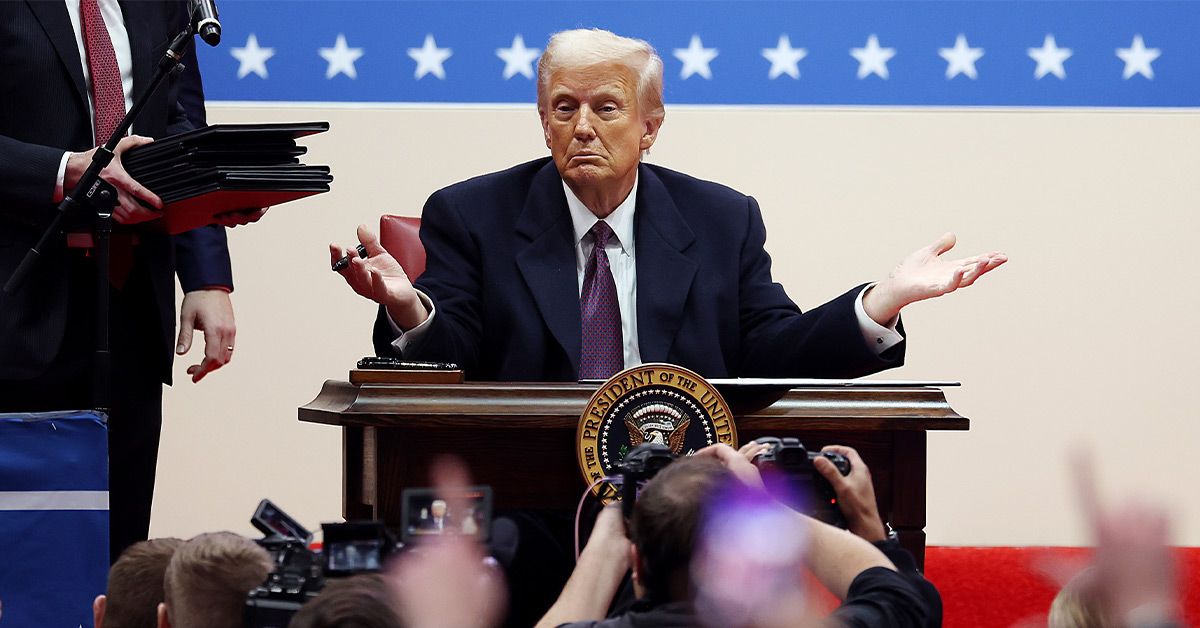Health
Trump Orders US to Withdraw from WHO. How It Could Impact Public Health

Introduction: Trump’s Second Term and Immediate Actions
President Donald Trump’s second term began with a flurry of executive orders, swiftly reversing several key policies established during President Joe Biden’s administration. Among these actions, the decision to withdraw the United States from the World Health Organization (WHO) has drawn significant concern from health experts and global leaders. This move signals a return to the sentiments of Trump’s first term, where he initially sought to leave the WHO in 2020, a decision later reversed by the Biden administration. The implications of this withdrawal are profound, touching on global health security, international collaboration, and the U.S.’s role in combating pandemics.
The Withdrawal from the WHO and Its Implications
The withdrawal from the WHO is justified by the Trump administration as a response to the organization’s handling of the COVID-19 pandemic and concerns over financial contributions. The executive order cites the WHO’s "mishandling" of the pandemic and alleges that the organization has not implemented necessary reforms. However, health experts argue that leaving the WHO could severely undermine global health initiatives. The U.S. is a major funder of the WHO, and its withdrawal could slash resources for vital health programs, particularly in developing countries. This decision not only affects global health but also weakens the U.S.’s influence in shaping international health policies.
Reversal of Biden’s Policies and Its Effects
Trump’s executive orders extend beyond the WHO, reversing multiple Biden-era policies. These include re撤al of U.S. participation in the Paris Agreement, which could hinder global efforts to combat climate change. Additionally, Trump pardoned individuals involved in the January 6, 2021, Capitol insurrection and deployed military personnel to the U.S.-Mexico border. These actions reflect a broader conservative agenda aimed at undoing Biden’s legacy. While these policy reversals have significant domestic implications, the WHO withdrawal stands out for its potential to impact global health security and international relations.
Expert Opinions on the Importance of WHO and Consequences of Withdrawal
Experts emphasize the critical role the WHO plays in global health, highlighting its efforts in vaccine approval, treatment guidelines, and pandemic responses. Dr. Monica Gandhi of the University of California, San Francisco, notes that the WHO’s role in global equity and outbreak response is unparalleled. She believes the U.S. should recognize the WHO’s importance and reconsider its withdrawal. Dr. William Schaffner of Vanderbilt University echoes this sentiment, arguing that it is more effective to work within the WHO to drive improvements rather than withdrawing and criticizing from outside.
The Role of the U.S. in WHO and Previous Withdrawal Attempt
The U.S. has historically been a significant contributor to the WHO, both financially and influentially. Trump’s initial attempt to withdraw in 2020 was met with widespread criticism, particularly during the height of the COVID-19 pandemic. This decision was reversed by President Biden, who restored U.S. membership and funding. Now, with Trump’s second term, the U.S. is again poised to leave, a move that experts warn could cede global health leadership to other countries, such as China. This shift could have long-term repercussions for global health governance and the U.S.’s ability to influence international health policies.
Conclusion: Concerns and Potential Impact
The decision to withdraw from the WHO under Trump’s second term raises significant concerns about the future of global health. Experts warn that this move could create a power vacuum, undermine pandemic responses, and reduce the U.S.’s influence in international health matters. The withdrawal not only affects global health initiatives but also has implications for domestic health security, as the U.S. relies on the WHO for critical health information and collaboration. As the world continues to grapple with health crises, the U.S.’s exit from the WHO could have far-reaching and detrimental consequences, both domestically and internationally.